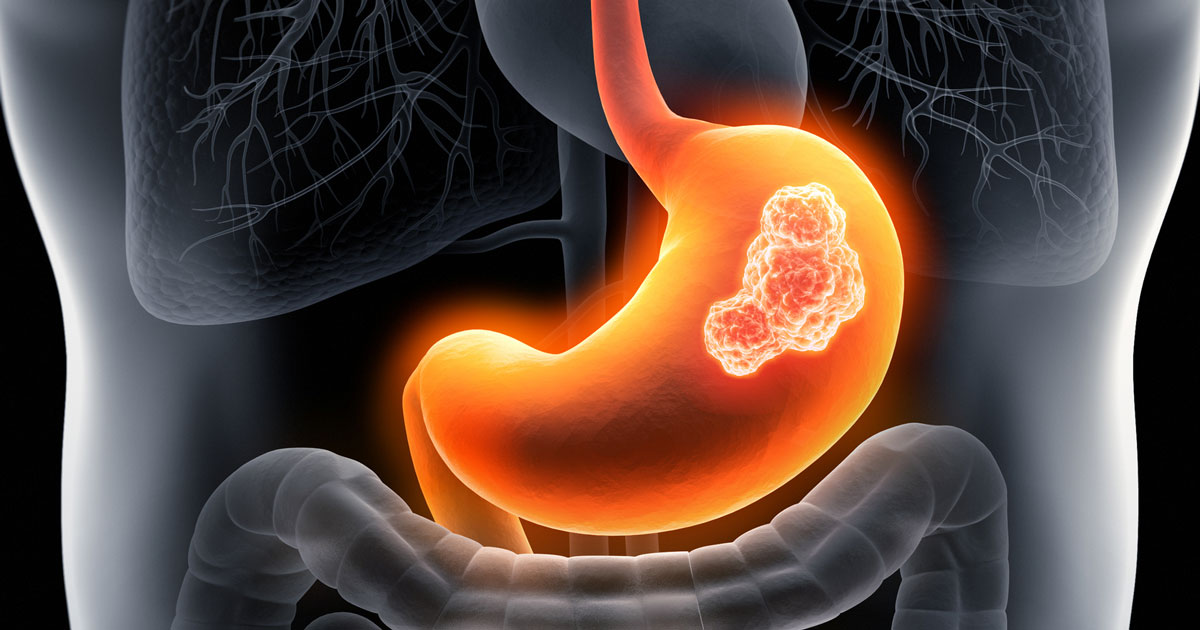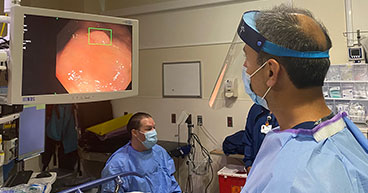
Update: Toby Keith passed away on Feb. 5, 2024, 18 months after his stomach cancer diagnosis. He was 62.
When country music superstar Toby Keith revealed on social media that he’s being treated for stomach cancer, he shined a bright light on a disease considered extremely rare—and getting even less common—in the United States. After all, stomach cancer (also called gastric cancer) accounts for fewer than 1.5 percent of all new cancer diagnoses and less than 2 percent of cancer deaths. And the rates of new cases and deaths have dropped significantly in the past several decades, according to the National Cancer Institute.
So, it came as a shock to many of his fans and entertainment industry peers that he’d been battling stomach cancer since last fall. Little is known about Keith’s specific case, but the treatment he says he’s received offers a glimpse into the treatment options available to most stomach cancer patients.
In this article, we’ll explore:
- What is stomach cancer?
- Toby Keith’s diagnosis
- Risk factors for stomach cancer
- Signs and symptoms of stomach cancer
- Stomach cancer treatments
- How we treat stomach cancer at CTCA
If you’ve been diagnosed with stomach cancer or any cancer of the digestive tract and are interested in a second opinion about your diagnosis or treatment options, call us or chat online with a member of our team.
What is stomach cancer?
Stomach cancer develops much the same way other cancers form. Cells in the stomach mutate and begin to grow out of control. Unlike normal cells, these damaged cells can’t shut themselves down when they malfunction, so they begin to divide and accumulate, eventually forming a tumor.
Most stomach cancers are adenocarcinomas that start in the stomach lining. Other types of stomach cancers include:
- Gastrointestinal stromal tumors
- Neuroendocrine tumors
- Lymphomas
- Sarcomas
While rare in the United States, stomach cancer is among the most common cancers worldwide, accounting for the second-most cancer deaths globally. In fact, stomach cancer was the deadliest cancer in the world as recently as the 1980s, when it lost its top ranking to lung cancer.
What’s not publicly known about Keith’s case is the stage at which he was diagnosed, a key component in the survival rates for the disease. For instance, if the cancer is discovered before it spreads—in stages 0 or 1—the five-year survival rate is 70 percent. If the disease is diagnosed in stage 4, after it’s spread to distant organs, the survival rate is 6 percent. The average five-year survival rate for all stomach cancer patients is 32 percent.
Toby Keith’s diagnosis
Toby Keith is one of country music’s biggest stars. Born in Clinton, Oklahoma, he hit the charts with his debut song Should’ve Been a Cowboy in the early 1990s. In the more than 25 years since, Keith has released several hit albums, garnered multiple music awards and played to sold-out arenas around the country.
But on June 12, just days before the kicking off a new concert tour, Keith announced his diagnosis.
"Last fall I was diagnosed with stomach cancer," the 60-year-old singer wrote Sunday on Twitter and Instagram. "I’ve spent the last 6 months receiving chemo, radiation and surgery."
A generous advocate
Keith has been a long-time supporter of families with children battling pediatric cancers. In 2006, he established The Toby Keith Foundation, which provides no-cost housing for families whose children are treated at The Children’s Hospital at the Oklahoma University Medical Center and nearby hospitals. In 2014, the foundation opened the OK Kids Korral, a place for families to stay during treatment.
“There is no greater gift than keeping families strong and together during a difficult time,” his foundation’s website says. “If we can alleviate stress on a family, encourage a brother or sister and comfort a sick child, then we will make a difference in the fight against cancer.”
Now it’s Keith who’s receiving an outpouring of support. Thousands of fans and many of his peers have responded to his posts with words of support and encouragement.
Risk factors for stomach cancer
While age is the biggest risk factor for stomach cancer, that may not have been the cause of Keith’s case. He turned 60 in July 2021, months before his diagnosis. The average age of a patient diagnosed with stomach cancer is 68. About 23 percent of patients are diagnosed in Keith’s age bracket of 55-64.
The cause of any specific case of stomach cancer may never be known. Stomach cancer, in particular, has a wide variety of known risk factors that range from genetics to lifestyle choices to infections, including:
- Helicobacter pylori (H. pylori) bacterial infection
- Epstein-Barr virus infection
- Tobacco use
- Obesity
- Alcohol use
- Exposure to toxins
- Genetic mutations, including BRCA1 and BRCA2 mutations and Lynch syndrome
- Race and gender, with the disease much more common in men and African Americans
Stomach cancer signs and symptoms
No screening tests have yet been developed to detect stomach cancer. However, genetic testing may determine whether someone carries a gene mutation that increases the risk of the disease. Tests may also reveal the presence of an infection from H. pylori or the Epstein-Barr virus.
Some symptoms of stomach cancer may develop when the disease still is in its early stages. Early signs of stomach cancer may include:
- Full feeling
- Indigestion or heartburn
- Nausea and vomiting
As the disease progresses, more symptoms may appear, including:
- Unexplained weight loss
- Stomach pain
- Blood in the stool
- Blood in vomit
- Jaundice
- Bloating or swelling in the abdomen
- Difficulty swallowing
Stomach cancer treatments
In his social media post, Keith said he received surgery, chemotherapy and radiation therapy. Surgery, a gastrectomy to remove all or part of the stomach, is first-line treatment for the disease. Chemotherapy and radiation therapy also are standard-of-care treatments.
What’s unclear is the order in which Keith received his treatments. In some cases, radiation therapy and chemotherapy may be given before the surgery, to shrink the tumor and make it easier to remove, or after surgery to kill cancer cells that may have been left behind.
Other treatment options for stomach cancer include:
Keith says needs time to recover, but he appears optimistic that his treatment has gone well.
“So far, so good,” he wrote. “I need time to breathe, recover and relax. I am looking forward to spending this time with my family. But I will see the fans sooner than later. I can’t wait.”
How we treat stomach and other GI cancers at CTCA
At Cancer Treatment Centers of America® (CTCA), we understand that malignancies of the gastrointestinal tract create unique challenges for patients. That’s why each CTCA® hospital has a GI Cancer Center dedicated to diagnosing, treating and supporting the quality of life of patients with stomach cancer and other GI cancers, including:
- Colorectal cancer
- Esophageal cancer
- Anal cancer
- Liver cancer
- Pancreatic cancer
- Neuroendocrine tumors
Committed to offering state-of-the-art treatments for patients with stomach cancer, our multidisciplinary team of board-certified medical oncologists, surgical oncologists, radiation oncologists, gastroenterologists, genetic counselors and supportive care clinicians work with our patients to deliver quality clinical care with a patient-centered approach.
After your diagnosis, your GI Cancer Center care team will discuss your options with you and help you develop a personalized care plan tailored to your individual needs.
Because of the digestive tract’s role in processing food and waste, many stomach cancer patients have difficulty with digestive function. That’s why nutrition therapy is a key component of our GI Cancer Centers’ approach. Each center is staffed by oncology-trained dietitians who work with patients in developing a healthy, balanced and appetizing nutrition plan. Other supportive care services, such as pain management, behavioral health or spiritual support, are also woven into many patients’ care plan.
If you’ve been diagnosed with stomach cancer or any cancer of the digestive tract and are interested in a second opinion about your diagnosis or treatment options, call us or chat online with a member of our team


